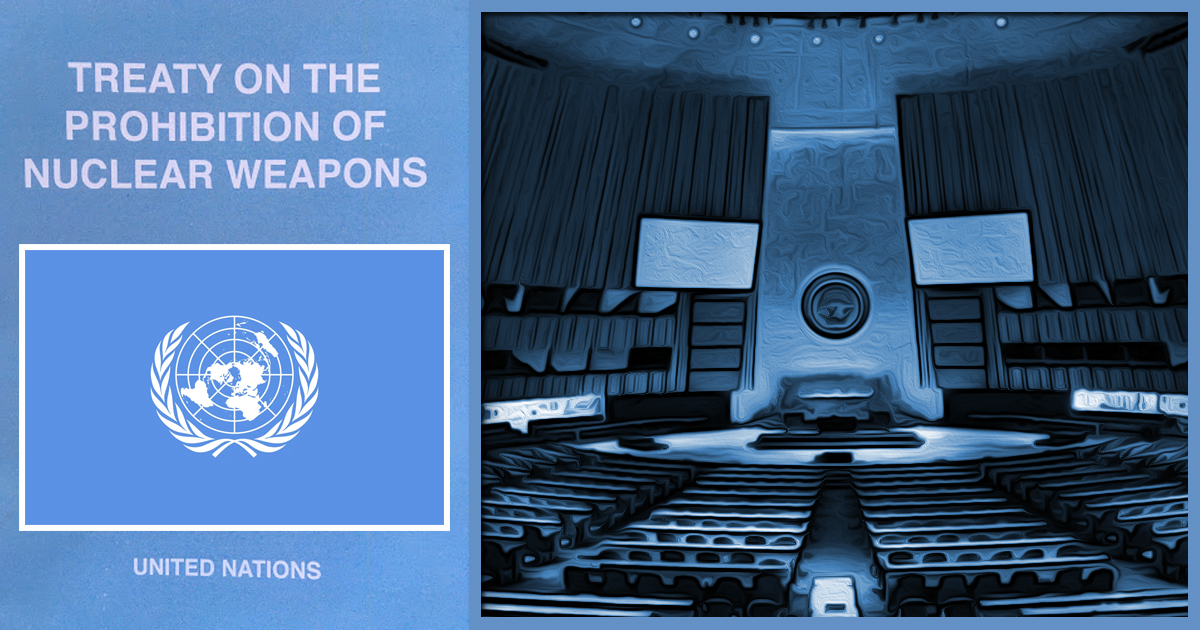
Context: September 26 is recognized as the International Day for the Total Elimination of Nuclear Weapons by the UN. This year’s observance highlights discussions around the Treaty on the Prohibition of Nuclear Weapons (TPNW).
About the TPNW:
- Adopted by the United Nations in July 2017, the treaty came into effect in January 2021, following the 50th ratification.
- The Vienna Action Plan was adopted during the first meeting held in Vienna, Austria, to ensure the treaty’s effective implementation.
Key Provisions:
Prohibitions:
- The treaty bans the development, testing, production, acquisition, possession, stockpiling, and use of nuclear weapons. It also prohibits threats of use, deployment on national territory, and assistance in any activities related to these actions.
Obligations:
- Environmental Remediation: Addresses the environmental contamination caused by nuclear weapon use or testing.
- Victim Assistance: Supports individuals affected by nuclear weapons, either through direct use or testing.
Other Nuclear Disarmament Treaties:
- Treaty on the Non-Proliferation of Nuclear Weapons (NPT)
- Comprehensive Nuclear-Test-Ban Treaty (CTBT)
- Outer Space Treaty (1967): Prohibits the placement and testing of weapons of mass destruction in outer space.
Arguments Supporting Nuclear Disarmament:
- Non-Proliferation and Arms Control: A commitment to disarmament by nuclear states encourages non-nuclear states to uphold non-proliferation agreements.
- Moral Duty: Disarmament represents a moral obligation toward creating a more peaceful world.
- Environmental Impact: Nuclear testing and potential use result in severe environmental contamination.
- Humanitarian Concerns: The devastation caused by nuclear weapons is both immediate and long-lasting, with wide-scale destruction and enduring harm to people and ecosystems.
- Global Safety: The proliferation of nuclear weapons increases the risk of their use, with potentially catastrophic global consequences.
Arguments Opposing Nuclear Disarmament:
- National Security: Nuclear weapons offer protection against threats and secure national interests.
- Strategic Stability: They help maintain stability between rival nuclear-armed states.
- Deterrence: The presence of nuclear weapons serves as a deterrent to potential aggressors and prevents conflicts.
- Geopolitical Realities: Trust issues and strategic competition make it difficult for all nations to disarm at the same time.
- Verification Challenges: Effective verification is critical; otherwise, nations might exploit disarmament agreements to their advantage.
India’s Position on Nuclear Disarmament:
- National Security: India views its nuclear program as a necessary expression of sovereignty and self-defense.
- Balanced Policy: India’s policy seeks to balance its security needs with its advocacy for global disarmament.
- Non-Signatory to NPT: India has not signed the NPT, regarding it as discriminatory due to its two-tier system.
- Global Security: India believes nuclear weapons pose a significant threat to global security and advocates for their complete elimination.




